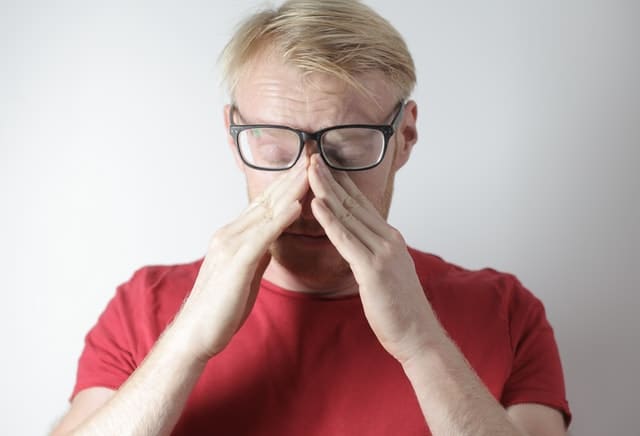Find Out What to Do for Eye Twitching
Although “eye twitching” can describe various conditions, it is typically used to describe a health problem related to the eye muscles.
Eye twitching, the medical name of which is myokymia, is the involuntary repetitive spasms of the eyelid muscles, usually, the muscles called orbicularis oculi.
Since it is quite common, it is not considered a medical problem, but it can be a symptom of various underlying conditions.
While the condition may be evident for individuals with eye twitching, in some cases the eyelid may twitch quickly enough to not be noticed by others.
It usually occurs on the upper eyelid. However, there are also cases where it is seen both in the upper lid and as a custody twitch.
In most cases, eyelid contractions are very mild and feel like a slight pull in the eyelid. But in more severe cases, strong spasms may be experienced that cause the eyelids to cover completely.
This is a different medical condition called blepharospasm.
Typically the causes of eye twitching are not too problematic.
However, the possibility that some more serious eye diseases may be the underlying condition should be considered, and an ophthalmologist should be consulted if it continues for a long time.
What Causes Eye Twitching?
The cause is not always easily identifiable. Generally, the cause of the twitching is not investigated, since there is no sign of a more serious problem, except in very rare cases.
The main causes of eye twitching are:
- Eyelid strain
- Insomnia
- Tiredness
- Allergic reaction
- Continuous and uninterrupted use of an unfiltered computer screen
- Side effects of the medicine used
- Infections around the eyes
- Excessive use of alcohol, tobacco product, or caffeine
- Environmental factors such as sun, wind, or dust
- Physical effort
- Corneal scratches
- Eye irritation and dry eyes
- Infections around the eyes
What to Do for Eye Twitching?

What to do for eye twitching – Limit tea and coffee intake to prevent eye twitching
You can try to prevent eye twitch in a variety of ways.
Intense work, focusing on the computer, reading a lot of books, watching television, excessively bright lights, caffeinated drinks, stress, dry eyes, anxiety and excessive tiredness can be factors in eye twitching. Therefore,
- In such cases, it is necessary to rest and keep an eye away from these situations for a while.
- Exercise can be applied by moving your eyes at certain intervals.
- Relaxation can be achieved by exercising the eye muscles and putting on cold or lukewarm compresses and tea bags.
- A daily sleep pattern should be maintained.
- Avoid stressful situations.
- Avoid caffeine for a while.
1. Apply the 20-20-20 Rule to Your Eyes
If you have to stay in front of the computer for long periods for work, follow the 20-20-20 rule.
You should move away from the screen every 20 minutes and focus your eye on an object 20 feet (6 meters) away for 20 seconds. In this way, your eyes will not be too tired and twitching will stop.
2. What to Do for Eye Twitching: Try A Healthy Diet

Change your eating habits
Deficiencies in various nutrients, such as magnesium, can also cause eye twitching. Try eating a healthy diet.
In short, we shouldn’t ignore the signals that our bodies send to us. After all, eye twitching can warn us about serious problems in our bodies.
Vitamin B12 deficiency is also one of the causes of eye twitching. You can overcome this deficiency by using B12 medications or by consuming foods rich in B12 such as fish, lamb and beef.
Vitamin D deficiency may lead to eye twitching by reducing calcium absorption.
If the cause of the twitching is vitamin D deficiency, you should use the vitamin D medication given by the doctor and consume foods such as fish, fish oil, milk and dairy products.
3. Do Not Rub Your Eyes. Massage Gently
Rubbing the eyes is something we sometimes do automatically when we’re tired. However, it will not be good to rub your eyes, especially if your eyes are twitching due to dry eyes or allergies.
Instead, gently massaging your eye area with your fingertips helps you to relax your eye muscles and the feeling of being gently touching your body supports your secretion of hormones that work against stress.
In addition;
If there is redness, swelling or an unusual discharge in addition to eye twitching, if the upper eyelid sags if the eyelids are closed completely with each twitch if the twitch has affected other parts of the face or has continued for a few weeks, an ophthalmologist should be consulted.
See Also:
Homemade eye cream for wrinkles

As a nutritionist, I research, find and experiment with recipes, natural diets and meal plans for weight loss, bodybuilding, and detoxing.
